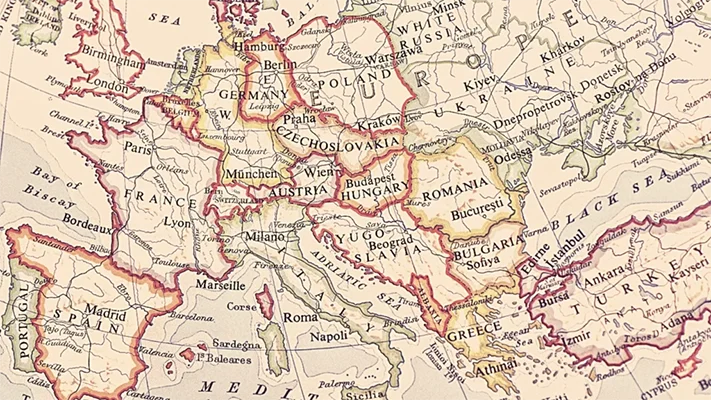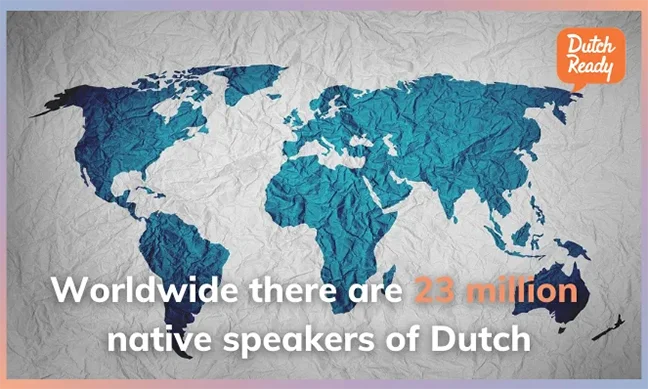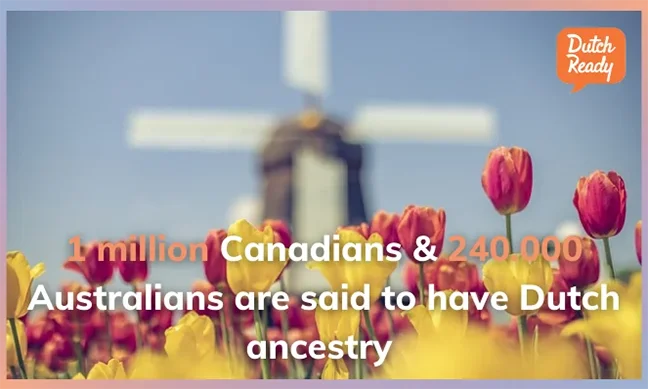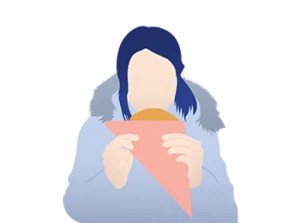

Even though we are proud of our language, we know that Dutch is not necessarily a very popular language to learn. Hardly anyone in the world speaks it right? Isn’t it also pretty difficult to learn? And don’t all Dutchies understand English anyway?
Yes, we’ve heard it all before. But did you know that Dutch is an official language in 5 countries? That it’s spoken in even more countries than that? And that it’s not that difficult to learn due to its similarities to English and German, and the predictability in pronunciation and grammar?
In this article, we’ll inform you where in the world you’ll be able to practice your Dutch vocabulary besides The Netherlands, and we’ll give you a little background of the language in general. You’ll be surprised to find out that there are actually more than 1 or 2 countries in the world where the words “gezellig” and “bitterballen” are found in the national dictionary!
The Dutch language
Dutch language (called “Nederlands” in Dutch) is the official language of The Netherlands, where 17 million people live. It is grouped within the Germanic Languages Category, meaning that it shares a common origin with English, German and Scandinavian languages. The earliest documents in Dutch date from approximately the end of the 12th century, although “Old Dutch” is said to be spoken already from the 6th century onwards. The Dutch we are now familiar with (called Modern Dutch) originated in the 16th century.
By now Modern Dutch knows hundreds of local dialects, is taught at more than 220 universities in 40 countries and is spoken by approximately 5 million people in the EU as a second language. Worldwide there are around 23 million native speakers of Dutch. Not that bad right?
With our dialogue bundle Praatgraag, you can step into this Dutch-speaking world by practicing real-life Dutch conversations in a fun and interactive way. Praatgraag is a great way to build your fluency and confidence, and connect with others in Dutch. Download the free Praatgraag A1 or Praatgraag A2 sample and try it out today!

Approximately 350,000 people in The Netherlands know another native language besides Dutch, and this language is called Frisian (“Fries”). Frisian is spoken and understood by most of the inhabitants of the province of Friesland, and is closely related to Dutch and English.
So is Frisian easy to understand then? Not really! Most Dutchies struggle to follow a Frisian conversation as the grammar, pronunciation and some of the words and expressions tend to be quite different from Dutch. Here are a few examples:
English
Elbow
Dutch
Elleboog
Frisian
Earmtakke
English
See you tomorrow!
Dutch
Tot morgen!
Frisian
Oant Moarn!
English
Where are you from?
Dutch
Waar kom je vandaan?
Frisian
Wêr komst do wei?
So we know about the 17 million people in The Netherlands speaking Dutch, but where do these other 6 million Dutch speakers live exactly?
Along with French, Dutch is the official language of Flanders, a region in the north of Belgium. Over 60% of the Belgian population therefore knows and speaks Dutch as their mother tongue.
Coming from The Netherlands it will not always be easy to understand Belgians, seeing their pronunciation and local dialects can differ quite a lot. “Belgian Dutch” (also known as Flemish) is known to sound softer, with a French ring to it. You will not hear the well-known harsh Dutch “g”-sound in Belgium, and the intonation also tends to be more melodic than in The Netherlands. Another difference is that Belgians mostly use the polite you-form(“u”), where the Dutch will address each other with the informal “jij” most of the time. The good news for those studying Dutch: grammar in both countries knows no difference.
As a former colony of the Netherlands, Dutch is still considered to be the official language of the government in Surinam. You will therefore mainly hear Dutch on tv, in newspapers and at schools. Approximately 60% of the population speaks Dutch as their mother tongue, mostly combined with Sranan, an English based creole.
Fun fact: Did you know that the 2021 Dutch Eurovision song “Birth of a New Age” was partially sung in Sranan Tongo? Dutch singer-songwriter Jeangu Macrooysinge – born and raised in Paramaribo – paid homage to his Surinam roots by phrasing an old “odo” in his song saying: “Mi Na Afu Sensi, No Wan Man E Broko Mi” (I’m half a cent, you can’t break me).
Dutch is also used as the official language of administration on the tropical islands of Aruba, Curacao and Sint Maarten. Even though most Antilleans will understand when you order your cocktail in Dutch, only 7% to 8% of the population actually considers Dutch to be their first language. Papiamento (a Spanish and Portuguese – based creole) is the most widely spoken language on the islands, with English coming in second.
One of the 11 official languages in South Africa is Afrikaans, which has its roots in Dutch. As a Dutchie, you will most likely understand a great deal of Afrikaans, as most words are super similar to those we know in Dutch. To show you some examples:
English
Breakfast
Dutch
Ontbijt
Afrikaans
Ontbyt
English
School
Dutch
School
Afrikaans
Skool
English
Action
Dutch
Actie
Afrikaans
Aksie
There are 7 million native speakers of Afrikaans in South Africa while approximately 10 million inhabitants speak Afrikaans as their second language.
Even though there are no other countries currently recognizing Dutch as an official language, some parts of the world are still somewhat linked to the Dutch. Take Indonesia for example; a former colony of The Netherlands where Dutch was considered an official language from the 17th century up to 1949. Many older people still speak the language up to this date, lots of legal documents are still only available in Dutch, and several thousands of students in Indonesia take Dutch courses yearly.
You might also hear Dutch in countries such as Canada and Australia, where many Dutchies moved to in the 1950s to set up a new life after the Second World War. These adventure-seekers passed on their language to the next generations and have therefore kept a lot of Dutch words and sentences alive. There are currently said to be over 1 million Canadians and 240.000 Australians living in both countries with Dutch ancestry.

Now you know where in the world Dutch is spoken, it might become more appealing to pick up your books and start your Dutch course right? Did you know that Dutch is not even that hard of a language to learn? The language itself might sound difficult at times, but due to its similarities to English and German, it’s actually a lot easier than you think!
Dutch Ready takes what you already know from English, and uses this during class to kickstart your Dutch. Furthermore, we hand out lots of tips and tricks on how to make studying easier and help you learn Dutch as quickly and efficiently as possible.
Check out our free dictionary of nearly-identical Dutch and English words on Quizlet.com/DutchReady, or get in touch with us to set up a discounted trial lesson!
that from now on you can also use Dutch Ready's e-learning? Our method, which is fully in line with the CEFR guidelines, offers a pleasant balance between grammar and exercises, and with the extra practical chapters you practice using Dutch in daily life even more. You can use our e-learning Dutch, which is currently available for levels A0-A1 and A1-A2, as self-study, or during guided lessons with a Dutch Ready teacher.
Language lessons & materials designed to help you learn Dutch fast. Use what you know, simplify what you don’t.

Hi! We just wanted to let you know that we use cookies on our site. These cookies enhance your experience, improve the quality of our site, and help us show you things that are more likely to be relevant to you. You have the option to manually allow third parties (including our advertising partners) to enable cookies on our website. By clicking 'Accept', you're agreeing to the placement and use of cookies described in our Cookie Policy. That's all. Thanks for reading!